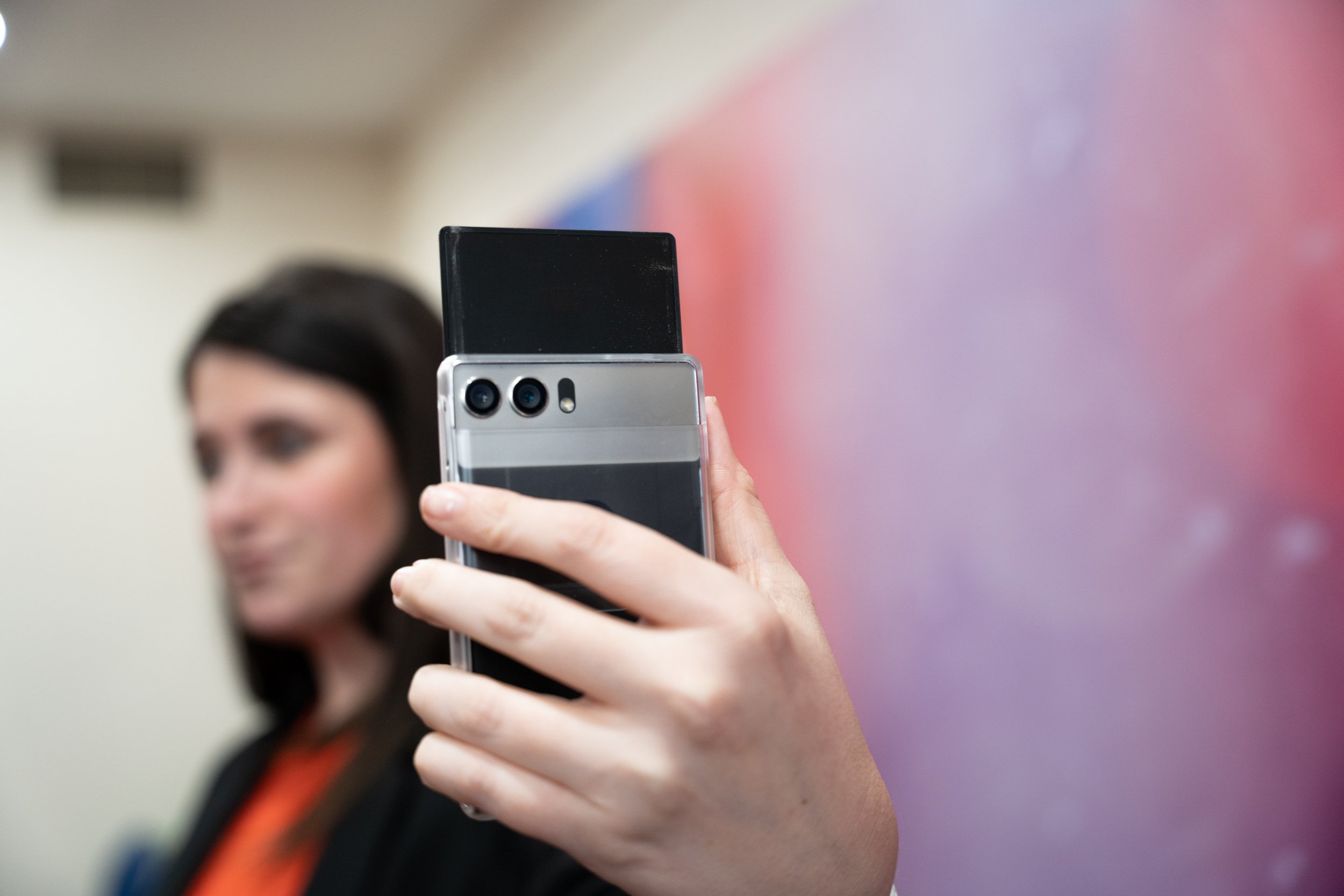Hot off recent showings, rollable screen mobiles have hit the public eye with their potential as the next big thing™. Introducing a concept that is certainly novel, the idea of extended viewing space is not new in mobiles, but there are questions as to whether this implementation would stand up. Looking at the logical comparison for folds, which we’ve investigated before here at Phandroid, could rollables be a game changer, or is their use too niche to be viable in the mainstream?
What is a Rollable Phone?
As the name suggests, a rollable phone features a display you can roll open to produce more screen space. Rollable phones are yet to reach production, though companies like Motorola already have functional concepts to try at conventions, in this instance with their “Moto Rizr”. In normal mode, this mobile phone functions like any other, but by sliding down the front of the display, the user can add a small amount of display space, and even reveal the previously hidden camera.
Head-to-Head
For a direct comparison of how a rollable phone might work in the real world, we could compare it to typical day-to-day methods of use with a folding system. For a point of comparison, consider the range of different approaches used in a common activity like playing games at Vegas Slots Online. On these websites, players can enjoy free games like Quake and Golden Goddess from anywhere with an active internet connection. The same applies to collecting bonuses like free spins and deposit matches, which have a long history on mobile devices. Whether playing on Happy Luke Casinos, Dafabet Casino, or any other site, how would the experience change?
In the current state of rollable technology, both website navigation and gameplay would be functionally identical to how they operate on regular mobiles. This is not to say it’s a bad thing, far from it, as standard mobiles are well equipped for this type of browsing and playing, but another couple of millimeters of space won’t really make a difference. On the other hand, the massive extra visual real estate from a folding device could be a real help for users with visual or dexterity concerns, and here the rollable phone couldn’t match up. The same could be said for watching movies, where the foldable system again comes out ahead.
Ultimately, the work put towards rolling phone concepts are interesting, but in their current incarnations, they feel like a step back. In a world where a folding phone is a book, the rolling phone is a scroll, and we can’t see any easy way to overcome this reality.
The Promise and the Concerns
As it now stands, the idea behind rollable phones works, but the technology is too far away from effectiveness to be useful in most situations. If the screen could produce double the space of a standard device, rather than just a few mm, it would be much more useful, for example. In this case, users would be better served with the proven robustness of folding phones, however. After all, the new-gen Z Fold 4 is built to withstand a minimum of 200,000 folds according to Science Focus, which means rollables have a lot of catching up to do.
With the current technology, the only real advantage we can see is how a rollable phone can hide the camera until it is needed. This mitigated risk of camera scratching, and eliminates any threats of unwanted snapshots of videos. Then, addressing this issue doesn’t necessitate rolling functionality, so it might not be considered a real advantage.
Then, the point of rolling phones might not be to truly ever see mainstream release, but rather to serve as an illustration of just how far flexible screen technology has come. Just a few years ago, tech enthusiasts were wary about folding phone screen tech too, and now it’s an accepted part of the mainstream. Rollable screens are new, but their applications could also reach far beyond the realm of mobile systems, becoming useful in other industries entirely. While only time will tell where and how this tech ends up, it’s still an interesting development and one which we won’t write off just yet.




